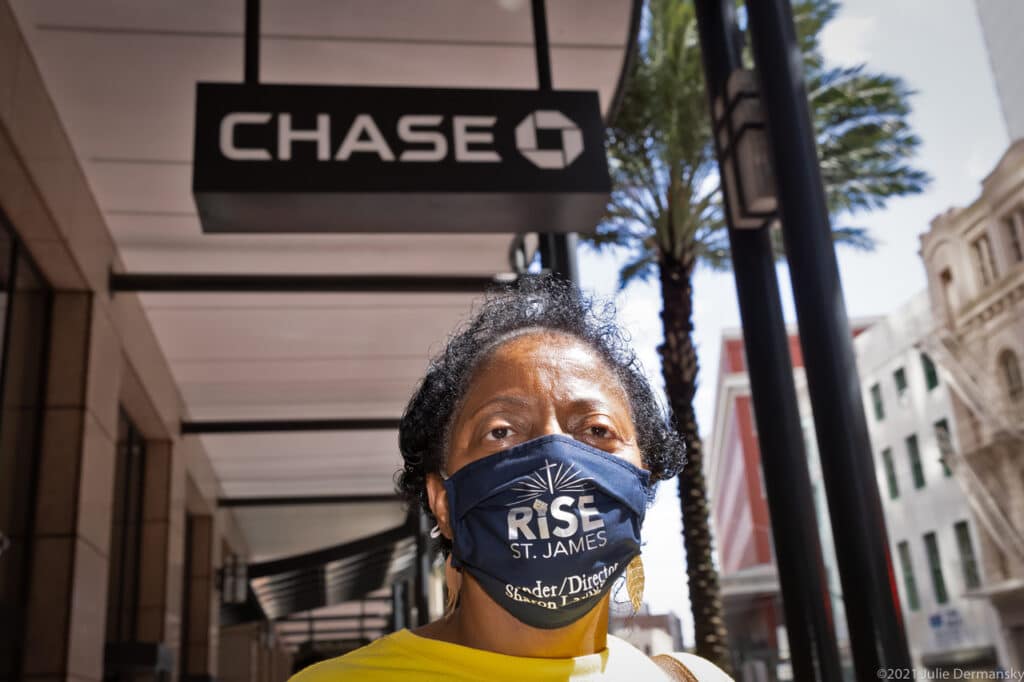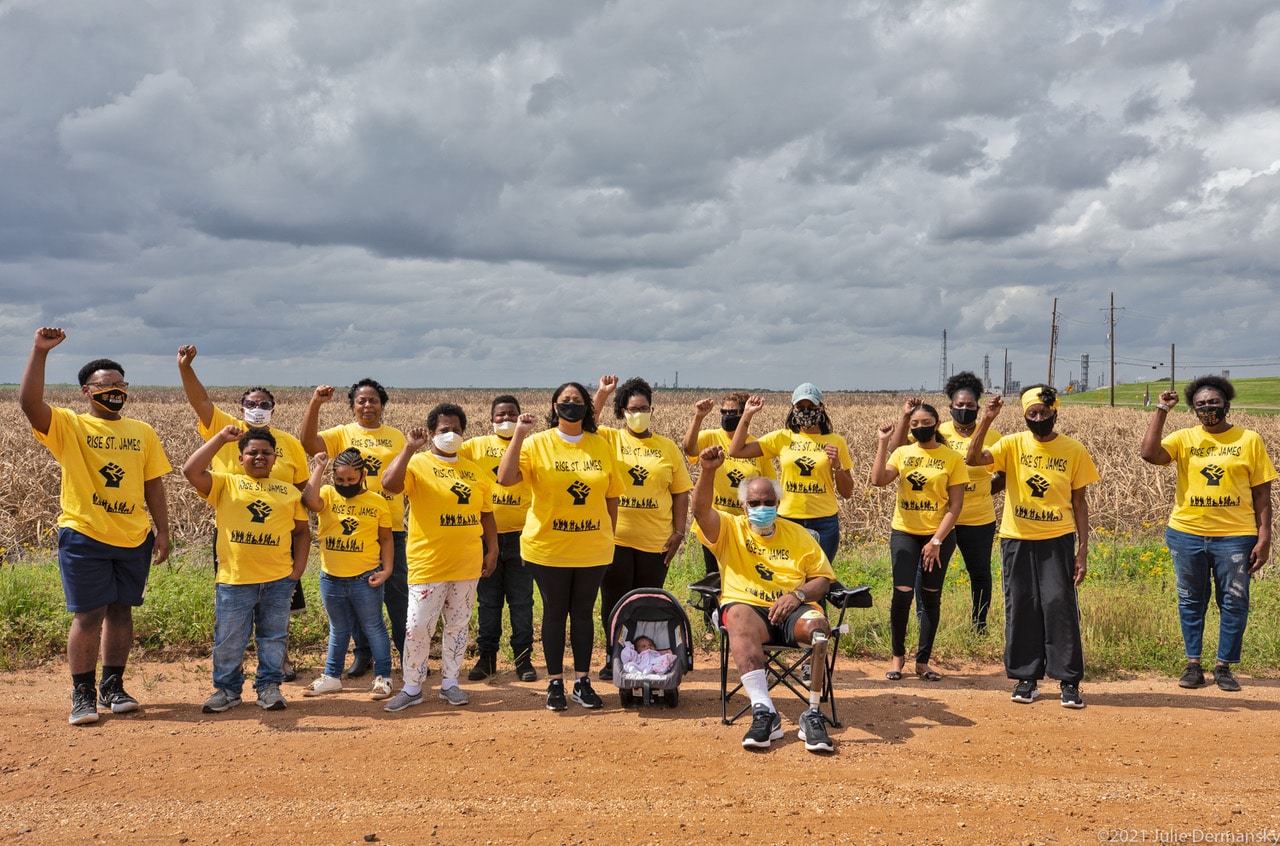The Formosa Sunshine Project in St. James Parish, Louisiana, will undergo a full formal environmental review, the U.S. Army Corps of Engineers announced in a memorandum issued today and posted on Twitter.
The decision deals a significant blow to the proposed multi-billion dollar plastics manufacturing site that would be located in the Gulf Coast region, potentially setting the project’s timetable back significantly.
The Corps highlighted concerns over environmental justice issues as it announced that it would require an environmental impact statement (EIS).
“As a result of information received to date and my commitment for the Army to be a leader in the federal government’s efforts to ensure thorough environmental analysis and meaningful community outreach, I conclude an EIS process is warranted to thoroughly review areas of concern, particularly those with environmental justice implications,” wrote Jaime Pinkham, principal deputy assistant secretary of the Army for Civil Works.
If built, the Formosa plant would pump out up to 800 tons of toxic air pollutants each year into communities that have long-experienced the impacts of living near plastic manufacturing, oil refining, and other petrochemical projects. It would also generate 13.6 million tons of greenhouse gases — more than triple the amount of climate-altering pollution the Environmental Protection Agency estimates a standard coal-fired power plant produces.
More than 200 petrochemical plants and refineries surround the Mississippi River’s path through Louisiana, part of the reason the St. James Parish area has become known internationally as Cancer Alley. And many plants — including the one where Formosa intends to build — were built on former slave plantations or are today surrounded by largely Black communities. The disproportionate burden borne by Black communities is so severe that the United Nations Human Rights Council said in March of this year that in Louisiana, “the development of petrochemical complexes is a form of environmental racism.”
The Corps’ decision was immediately hailed by environmental and community advocates.
“Nobody took it upon themselves to speak for St. James Parish until we started working to stop Formosa Plastics,” Sharon Lavigne, a Goldman Prize winner for her grassroots environmental work and founder of the community organization RISE St. James, said in a statement. “Now the world is watching this important victory for environmental justice.”

RISE St. James was founded in 2018 and initially focused on a proposed $1.25 billion petrochemical project that a Chinese firm, Wanhua, wanted to build in St. James Parish. Wanhua ultimately pulled out from that project in September 2019.
Asked about the Corps’ memo, FG LA, LLC, the subsidiary of the Thailand-based Formosa Petrochemical Corporation that’s behind the Sunshine Project, noted in a statement that major construction has been on hold since November 2020.
“FG LA LLC’s unwavering commitment to the parish and to Louisiana has remained constant as the company continues to invest in community needs and build meaningful community partnerships,” Janile Parks, the company’s director of community and government relations, said in a statement provided to DeSmog. “The tweet and accompanying letter from the Acting Assistant Secretary of the Army posted today online provide little detail on EIS procedure the Corps intends to use in its additional evaluation of the project. As a result, the company will continue to work with the Corps as we receive more guidance on the additional evaluation and has no further comment at this time.”
The Sunshine Project has already run into stiff headwinds and significant delays. In October 2020, Formosa announced the project would be delayed as a result of the Covid-19 pandemic. Shortly after, the Corps suspended another permit covering ways that the plant’s construction would impact wetlands following legal challenges.
In December 2020, S&P Global estimated that costs for the proposed petrochemical complex had already risen from $9.4 billion to over $12 billion — and that was before environmental advocates with the Center for Biological Diversity filed a lawsuit in January arguing that the project’s environmental impacts needed a closer look and that the Corps’ permits and authorizations for the project were issued in violation of environmental laws.
“This long-overdue review will show the unacceptable harm Formosa Plastics’ massive petrochemical complex would inflict on this community, our waterways, and our climate,” Julie Teel Simmonds, a senior attorney at the Center for Biological Diversity said in response to the Corps’ memo. “This terrible project shouldn’t have been rubber-stamped and it should never be built. Climate action and environmental justice mean we have to stop sacrificing communities and a healthy environment just to make throwaway plastic.”
Other environmental advocates highlighted the parallels between the Formosa plastics plant and proposed petrochemical projects nationwide.
“The race to massively expand plastics and petrochemical infrastructure is putting communities across the U.S. at risk, with disproportionate and overwhelming impacts on communities of color,” Jane Patton, a campaign manager for the Center for International Environmental Law, told DeSmog. “The Army Corps of Engineer’s initial approval of the Formosa Plastics megacomplex in St. James without adequately assessing these or other impacts was a grave mistake. It should be the last such mistake.”
“In the end, we expect the Army Corps of Engineers to uphold their obligations to human rights and environmental justice by revoking Formosa’s permit, once and for all,” Patton added, “and by ensuring that other proposed facilities that could create similar risks are never approved.”
In May, the International Energy Agency called for an end to investments in new oil and gas fields, citing climate change and the energy transition that’s required to curb it. In recent years, fossil fuel producers have sought to market themselves to investors by suggesting that even if demand slows for fossil fuels for cars or for electricity, demand for fossil fuels to make plastics and petrochemicals would nonetheless continue to rise.
But if the progress of a plastics production project in Louisiana is any kind of bellwether for those plans, analysts may need to reconsider those assumptions. Lavigne of RISE St. James predicts that the Formosa project will ultimately run aground.
“I told them Formosa is not coming,” Lavinge said on a call shortly after learning about the U.S. Army Corps memo, “and it is just like I said.”
Subscribe to our newsletter
Stay up to date with DeSmog news and alerts







